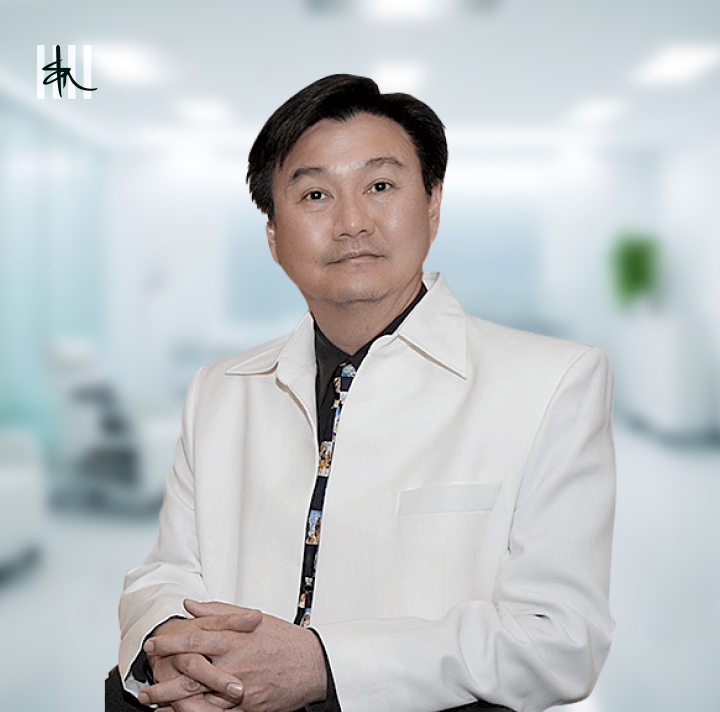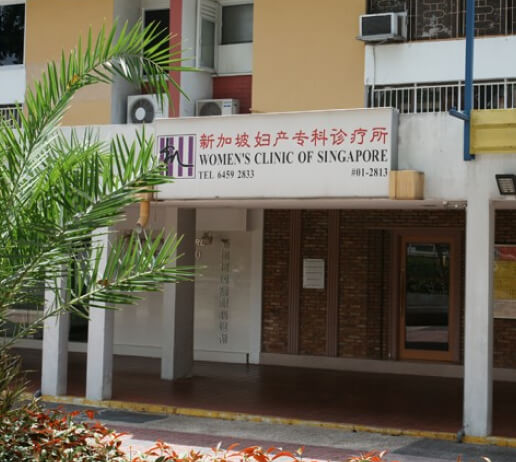Medical Abortion (Pill)

What is a Medical Abortion?
How Does a Medical Abortion Work?
In Singapore, a medical abortion has been possible for decades with the use of a medication called misoprostol (Cytotec). This medicine has been approved for use to treat and prevent stomach ulcers – not for abortions. It has a side effect of causing spasms of the womb – which proves to be useful for pregnant women wanting abortions – so please note that it is an ‘off label’ use of the drug. When used alone for abortion, it is a much more painful method of causing a miscarriage since it essentially causes the womb to go into contraction to literally ‘squeeze’ the pregnancy out of your womb. Since it is low cost, it is widely used around our region for abortion purposes.
More recently, a much more specific abortion medication which can directly target pregnancy cells has been made available. However, it is much more costly. It is called Mifepristone, but also known as RU-486 or Mifegyne.
For best results, both medicines need to be taken in combination. At our clinic, we offer the gold standard (a coordinated regimen of 13 tablets). These are to be taken in combination, over an 8-hour standard. The cost of this premium package starts from $1,000.
Can I buy the tablets for Medical Abortion without seeing the doctor?
Those who think that one can just go to any doctor to buy these tablets have completely the wrong concept of abortion in Singapore. It's not a matter of buying the medicines and then taking the medication by yourself without any consultation, examination or counselling. You need to be properly assessed by qualified specialists who are licensed to practise abortions, and go through the same counselling process with the mandatory two-day waiting period. Next the entire process needs to be properly supervised - otherwise you could end up with many more problems and complications.
Cramping and vaginal bleeding are the most common side effects after having a medical abortion. These are normal and should stop after a few days or weeks. However, do not assume that having these two symptoms means that a miscarriage has occurred. Many women with ongoing pregnancies can also experience such symptoms. If symptoms such as a fever, vomiting, diarrhoea, persistent headaches, heavy bleeding, and abdominal and back pain are present, immediate medical attention should be sought.
What happens after I take the tablets for Medical Abortion?
What is the price of the tablets for Medical Abortion?
The price of an abortion pill in Singapore is determined by many factors, especially the type of drug combination taken. Single drug regimens (especially in lower doses) can reduce the price, but also the success. However, even taking the optimal combination of two drugs in the best doses will not guarantee success. The type of clinic or hospital (private or public) you go to, the doctor’s professional fee, the length of pregnancy and so on also influence the price. Most of all, if you suffer any complications from taking the pills – like if it simply doesn’t work for you or if there are incomplete miscarriages, then the resulting corrective surgery required may mean much more costs and complications than just having the surgical cleansing done directly in the first place. So, the price can vary from $1,000 to $4,500 depending on whether you respond to the pills, and whether there are any complications from the miscarriage and therefore treatment needed for these complications.
The cost of a medical abortion therefore depends on your response to the abortion drugs and your ‘luck’. It could be less, but it could also be much more. An early surgical abortion would cost between $1,200 - $1,400 whilst a simple medical abortion would cost about half that amount. However, one needs to be prepared that the medicines do not work, and also to suffer the pain and stress of a miscarriage. Having more follow-ups adds to the costs. Also, if the medicines do not work (as in 10% of cases) or if there is prolonged bleeding, then surgical cleaning (D&C procedure) is needed – then this adds to the costs and you will end up paying much more than just a simple surgical procedure to start with. So, if you’re ‘unlucky’ – the method abortion route would be more complicated, expensive and stressful.
Why is Medical Abortion Performed?
Some patients prefer a medical abortion because the process can be done in the comfort of their home, and without having to undergo surgery. Some may also prefer how it feels more “natural”, as the experience is akin to a miscarriage. It is also less expensive as it does not require surgery or anaesthesia.
However, the above are ideal outcomes. The truth is that medical abortions are not without their downsides, which your doctor will explain to you and help you come to an informed decision. Miscarriages seldom end quickly and may result in many days and nights of pain and heavy bleeding. Trying to achieve such natural outcome in a miscarriage can often lead to more stress, more pain and more complications.
The best comparison is with childbirth – natural childbirth in a home setting versus a surgical birth in a hospital. Pain and stress are obviously much more at home, and a normal birth may not result with complications if they occur being much more dangerous. In comparison, a Caesarean birth is usually painless and complications better managed in the hospital.
Who Should Get a Medical Abortion?
Is Medical Abortion Right for You?
A medical abortion is not for everyone and one should seek the advice of experts. Self-medicating with pills bought overseas is fraught with dangers, especially if unsupervised.
Those who wish to go through medical abortion with pills must go through the whole abortion process as dictated by the Abortion laws of Singapore, and be properly counselled by MOH-approved counsellors.
Although medically induced abortions seem simple, they are not for everyone, especially when the pregnancy is more advanced or if the mother has other medical conditions.
It is essential to get the advice of a specialist who has had many years of experience performing medically induced abortions and managing the complications of miscarriages.
Many women do not realise that there are multiple regimes for the induction of miscarriage by pills, and only an experienced specialist in this practice can choose the best combination for different patients. One method does not fit all patients.
Whilst many go through medical abortion successfully, serious and permanent damage can be the end result in some, if not managed properly. It is therefore important to be supervised by an experienced specialist.
What are the Potential Risks of Medical Abortion?
As with any medical procedure, a medical abortion comes with potential risks, including:
- Failure of the pills to work, since such medications do not have 100% guaranteed success rates.
- Increased complications due to a failure to go back for monitoring by an expert. It has been shown that complications are highest when patients just take abortion pills without proper supervision. They then develop complications without such supervision.
- Pelvic sepsis could result in infections in other parts of the body.
- Future permanent infertility can be the result of undiagnosed and sub-clinical pelvic infections - secondary to unsupervised medical induced abortions.
- Tubal blockage with ectopic pregnancies due to pelvic infection could be a result.
- Hospitalisation can be the result of complications from the resultant miscarriage induced by pills.
- The stress of pill-induced miscarriages can trigger post-traumatic stress disorder (PTSD) in some women, with studies indicating that up to 29% of women experience symptoms of PTSD one month after a pregnancy loss.
Frequently Asked Questions
Is medical abortion legal in Singapore?
Medical abortion (abortion pill) is legal in Singapore, especially when prescribed and overseen by a licensed medical specialist who is licensed to practise and counsel for abortions. You cannot just buy the abortion pills from any general practitioner.
How long does it take for misoprostol to work?
That really depends on the type of medication you have been give and the dosage. One or two types? How many tablets? What is your response? Medicines work differently for everyone.
How long does medical abortion take?
If you are lucky the medical abortion can be quick with the pain and heavy bleeding in the first few days, then less bleeding over a week. However, half may get pains lasting several days, with bleeding dragging on more than 7 and up to 14 days. A minority may still have bleeding after 2 weeks and these needs to be thoroughly assessed by the specialist for complicated or incomplete miscarriages.
Is medical abortion painful?
If you are just given Misoprostol alone then pain is a bigger factor. The bleeding and cramping can be quite heavy in roughly half the cases, whilst the uterus is contracting to expel the pregnancy tissues.
What is the success rate of medical abortion?
In eligible patients, it depends on the type of medical abortion regimen given and the size of the pregnancy. A medical abortion can have a success rate of over 90% is only to be found in the best-case scenarios, with many failing to reach this success rate. Patients should be seen by the attending gynaecologist multiple times to ensure that the abortion was indeed complete; and if it was not, an aspiration procedure will be necessary to complete the procedure urgently to prevent long term damage due to infection.
Will the abortion pill affect future pregnancies?
Yes, if you do not go back for supervision, and ignore symptoms of complications then long-term damage may occur. This usually occurs for patients who cannot afford the surgical procedure in the first place – and chose medical abortion as the cheaper and only option. They suffer in silence since they not have the financial option of paying to treat the complications of the medical route. If anyone wants to try the medical route, then they must be fully prepared to pay the extra costs of treating for possible complications – otherwise taking the abortion pill will have an effect on a woman’s fertility.

Dr Jen Shek Wei
Consultant Obstetrician & Gynaecologist
Dr Jen Shek Wei is an obstetrician and gynaecologist with over four decades of clinical experience. He graduated from medical school in Singapore in 1979, having earned multiple academic awards, and went on to complete his postgraduate training in both Singapore and the United Kingdom by early 1985. Dr Jen began his specialist career as a consultant at several key institutions, including Kandang Kerbau Hospital, Toa Payoh Hospital, and the National University of Singapore. In 1988 he was elected a Fellow of the Academy of Medicine, Singapore, in recognition for his medical contributions.
In 1988, Dr Jen set up his private practice and opened clinics in Ang Mo Kio and Tampines to make women’s healthcare more accessible. These clinics have served a large and growing patient base ever since, reflecting his commitment to community-based care. Dr Jen’s patient-first approach has earned him a strong reputation for both clinical excellence and compassionate service.
In 1988, Dr Jen set up his private practice and opened clinics in Ang Mo Kio and Tampines to make women’s healthcare more accessible. These clinics have served a large and growing patient base ever since, reflecting his commitment to community-based care. Dr Jen’s patient-first approach has earned him a strong reputation for both clinical excellence and compassionate service.
In recognition of Dr Jen’s sustained contributions and expertise, he was named a Fellow of the Royal College of Obstetricians and Gynaecologists (London) in 1999—an honour reserved for senior specialists who have demonstrated a significant impact on the field. His credentials reflect both a lifelong dedication to medicine and a deep commitment to advancing women's health in Singapore.
Our Promise To Patients
MOH-Licensed
Abortion Clinic
Appointment
with 24 Hrs
Competitive &
Transparent Pricing
Abortion Pill
& Surgery Available
No Hospitalisation
in Most Cases

Use of
Medisave Allowed


(Next to "Eye Clinic" & "Family Medicare Clinic")
- Sunday & public holidays (whole day), and
- Afternoons of Tuesday, Wednesday, Thursday and Saturday.
